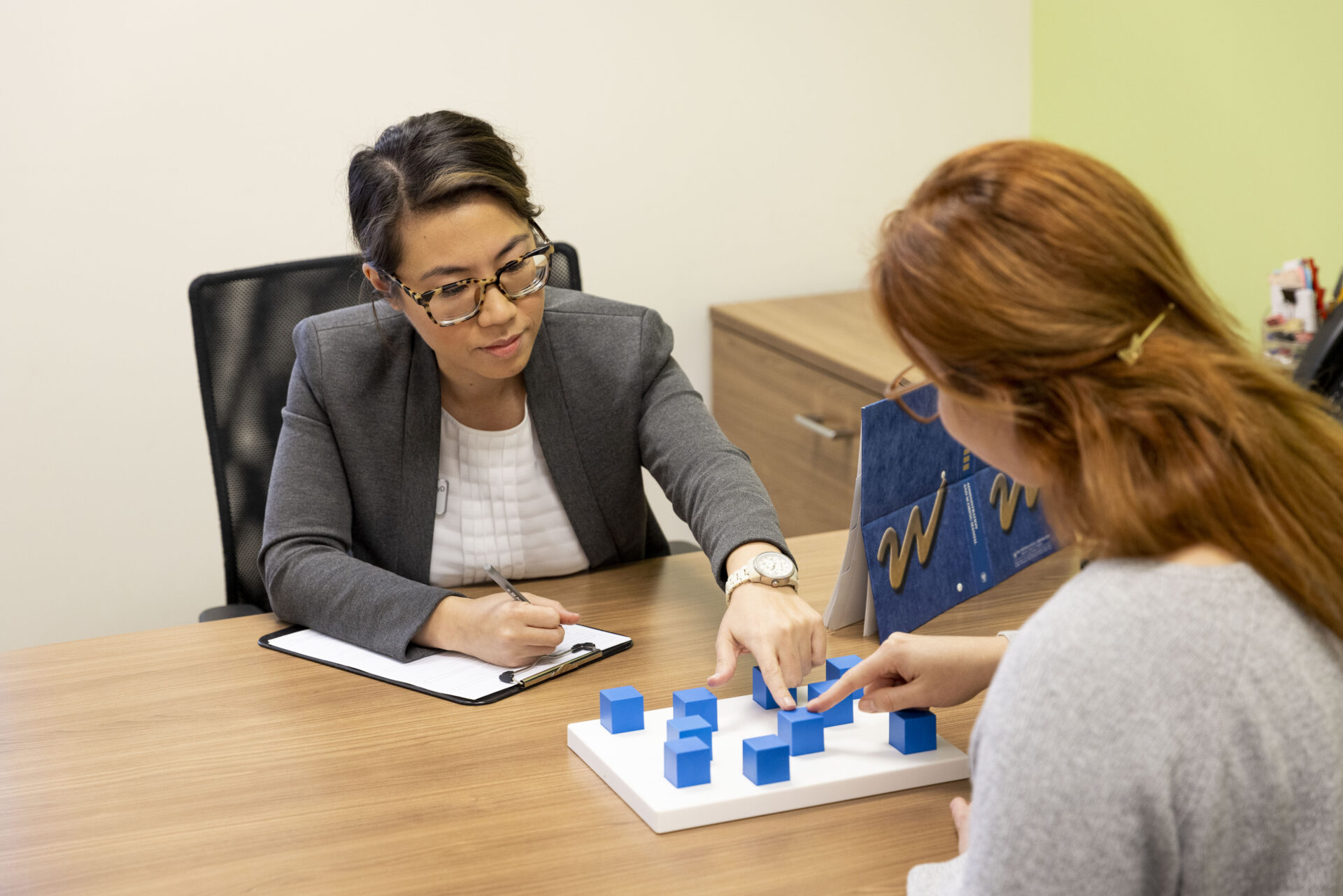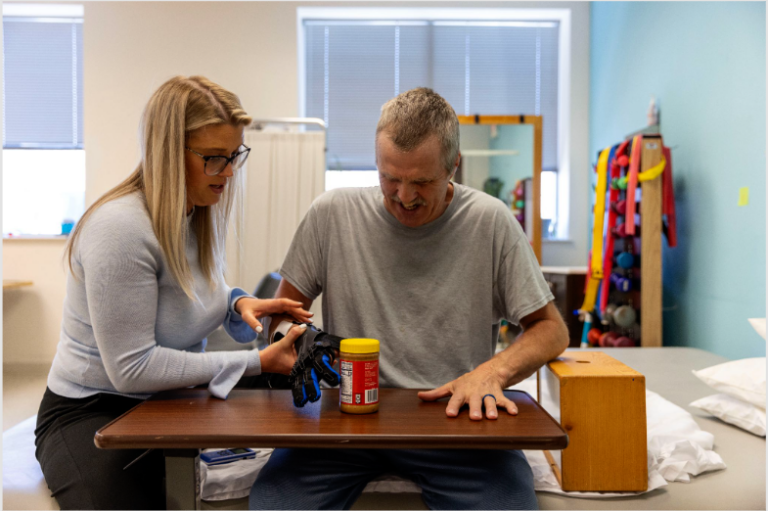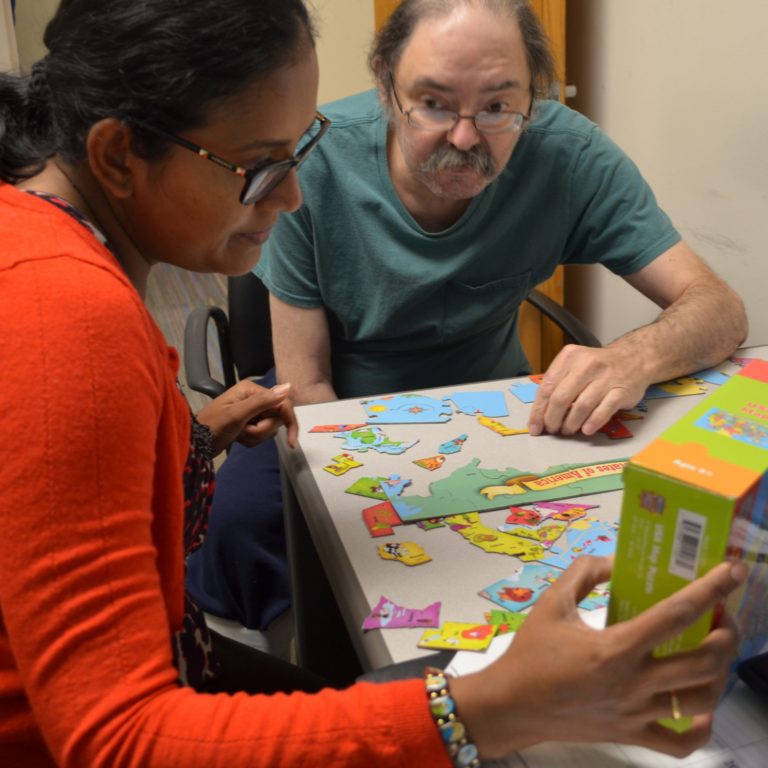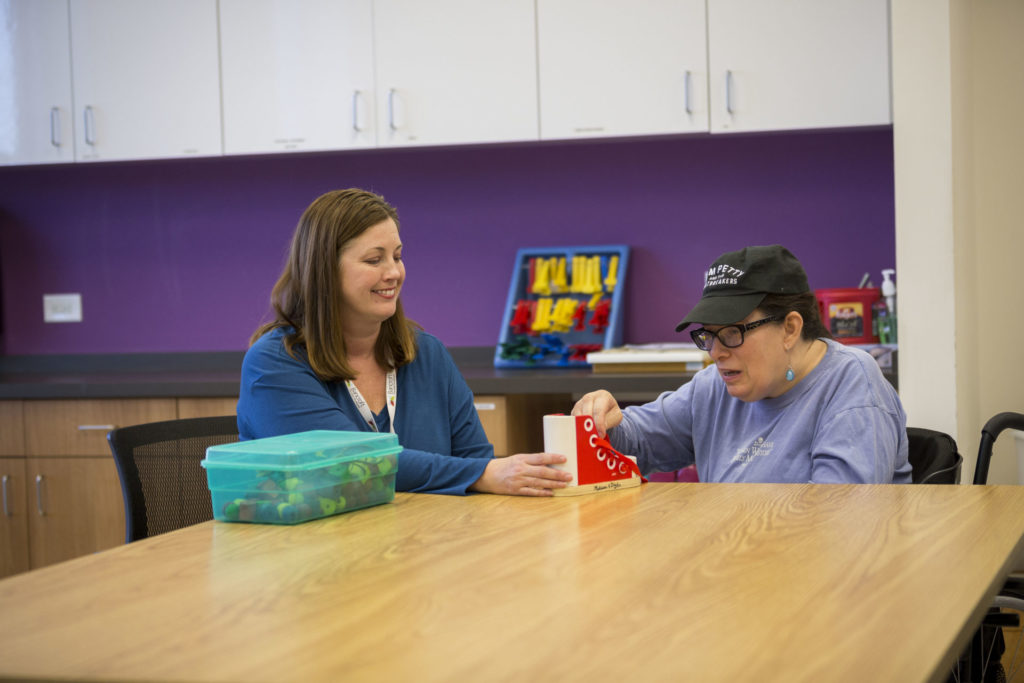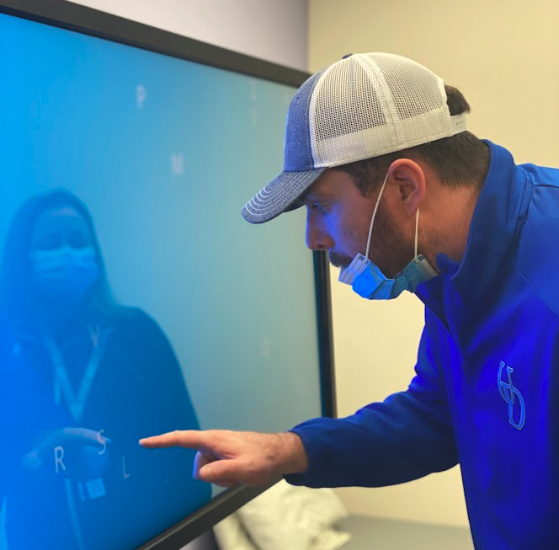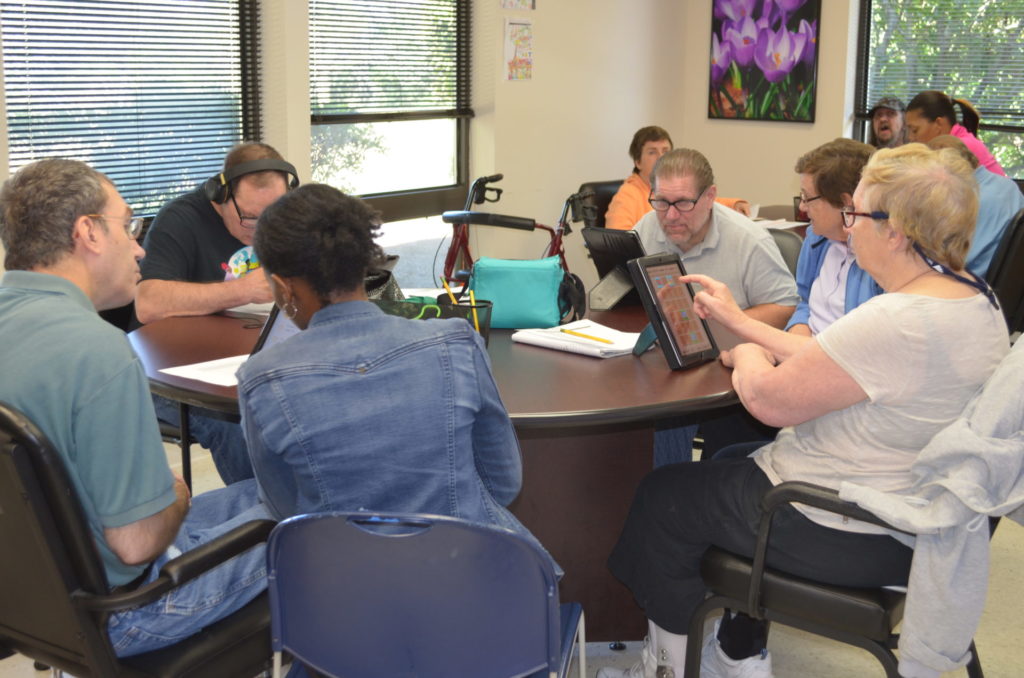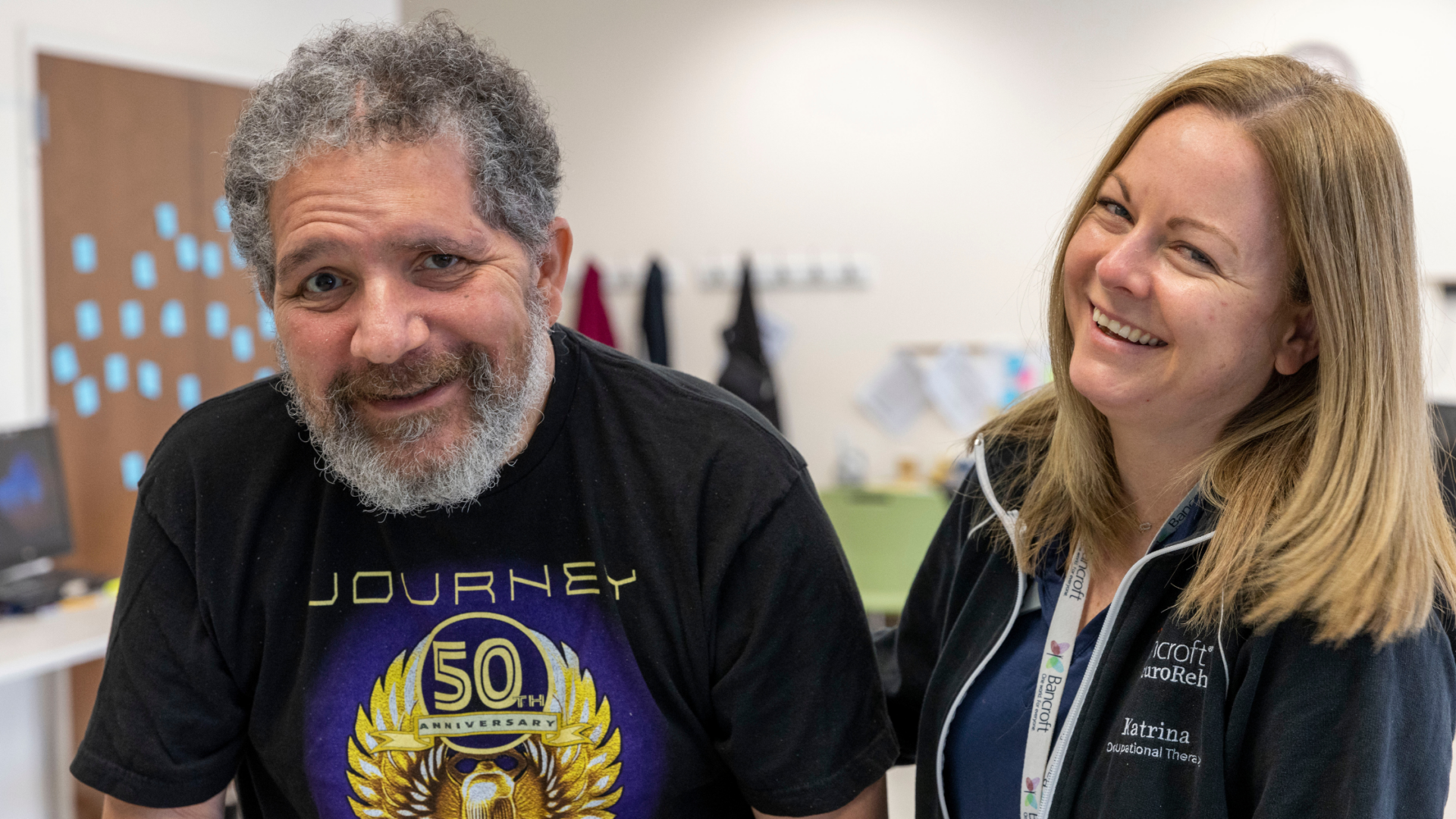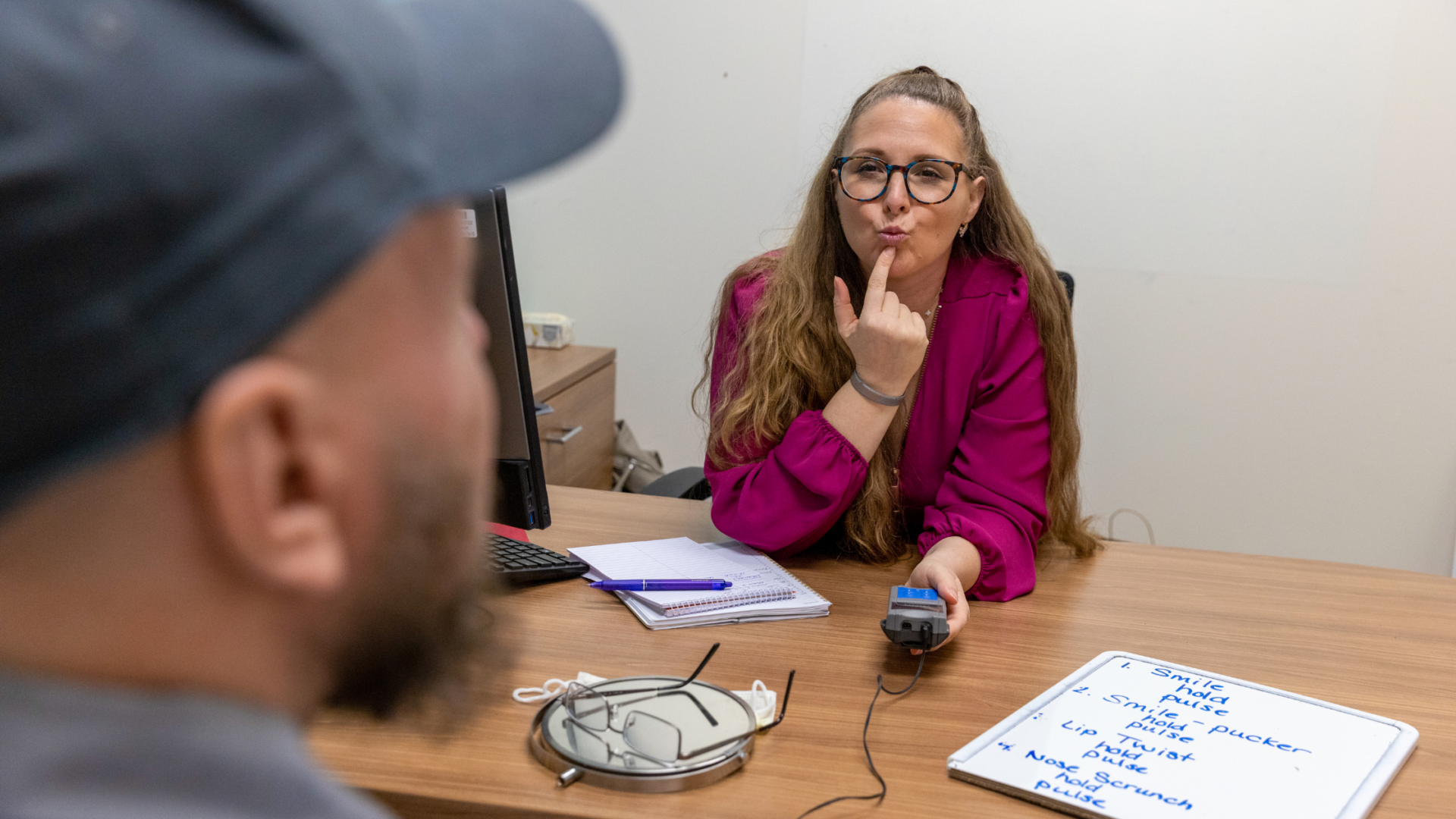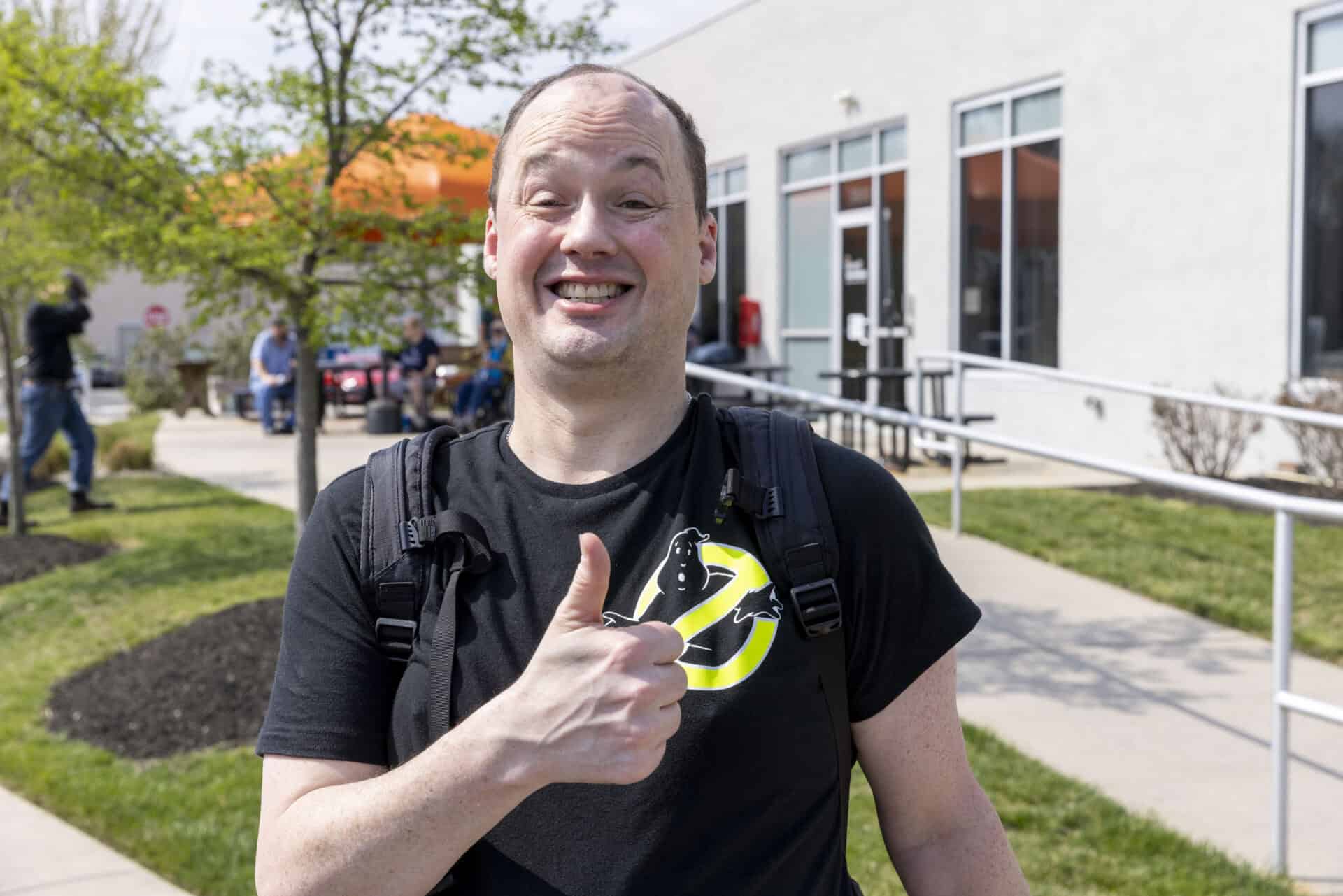Practical tips and advice to help your loved one regain strength, confidence, and independence.
A stroke doesn’t just change the life of the person who experiences it — it also deeply affects their family and friends. Every recovery looks different. For some, it’s a long, complex process involving physical, emotional, and cognitive challenges. For others, the effects are more limited and short-term. Whatever the journey, support from loved ones makes a lasting impact.
In this article, Bancroft NeuroRehab Physical Therapist and Rehabilitation Supervisor, Nicole Schwartz, OTR/L, OTD, CBIS, shares the incredible impact that supportive family and friends can have on a stroke survivor’s rehabilitation and overall well-being. This guide to supporting stroke survivors offers insights and practical advice on how you can support your loved one through this journey.
Understanding the Emotional and Psychological Impact
It’s completely normal to experience a mix of emotions like frustration and self-doubt after a stroke, even sadness. It’s important to encourage your loved one to share their feelings and reassure them that it’s okay to feel this way.
However, it’s not healthy to dwell on the negative for too long. Gently guide them to focus on the positives – their strengths and the progress they’ve made. Remind them of their many blessings and encourage them to practice gratitude. A positive outlook can make a world of difference in their recovery.
A stroke is a brain injury that impacts all facets of a person, physically and mentally. Emotional recovery is just as important as physical rehabilitation, and early support can make a real difference. Encourage your loved one to connect with a neuropsychologist, social worker, or therapist to help them process the challenges they face. Talk therapy can provide a valuable outlet for managing frustration, grief, and emotional adjustment after a stroke.
In addition to professional support, finding ways to relieve stress outside of therapy is important, too. Help your loved one reconnect with leisure activities they enjoyed before the stroke, or explore new hobbies that bring a sense of calm and accomplishment. Incorporating little moments of joy and relaxation into their daily routines can make a meaningful difference in recovery.
Similarly, connecting with others who have faced similar challenges helps build a sense of community, understanding, and shared strength. You and your loved one might consider joining a stroke support group to find encouragement and connection along the recovery journey.
A stroke can leave survivors feeling isolated and disconnected. Having a strong support system is essential to their recovery. Let your loved one know, through both words and actions, that you are there for them. Even if they don’t always need help, simply knowing someone is close by and available offers a powerful sense of comfort and security.
Communicating with Care After Stroke
Open, flexible communication is critical when supporting someone after a stroke. If verbal language is difficult, encourage other ways of expressing themselves, like typing, writing, or using gestures and pictures alongside words. Exploring different forms of communication can ease frustration and help your loved one feel more connected.
Patience is just as important. After a stroke, processing speed often slows down. Your loved one may fully understand you but needs extra time to respond. Give them the space they need to process at their own pace, and follow any communication strategies recommended by their speech therapist to support effective conversation.
Helping Your Loved One Maintain Identity and Independence
Supporting your loved one’s independence is one of the most effective ways to boost their confidence and well-being. Encourage friends and family to continue treating them as they always have — as their friend, uncle, sister, mother, or son — to help maintain their sense of identity and belonging.
When it’s safe, encourage your loved one to take on daily tasks themselves. Even small accomplishments, like making breakfast or getting dressed, can help rebuild a sense of purpose and pride. You can support their success by making frequently used items more accessible and allowing extra time for them to complete tasks at their own pace.
It’s natural to want to step in when you see them struggling, but doing so too quickly can unintentionally slow their progress. Focus instead on supporting their efforts. For example, if brushing their hair is manageable but styling it into a ponytail is difficult, let them complete what they can and offer help only when needed. Building on their abilities, even if they need a little assistance, promotes greater confidence and independence.
Respecting your loved one’s independence also means avoiding assumptions about what they want or need. Rather than making decisions for them, take time to ask about their preferences and goals. Keeping them involved in everyday choices preserves their sense of control and dignity and strengthens your connection during recovery.
Above all, balance encouragement with respect for their comfort level. If they feel more at ease staying home, invite friends and family to visit them there. If they prefer small gatherings over large ones, honor those choices whenever possible. Respecting their wishes, big or small, reinforces their independence and shows that their voice still matters.
Building a Strong Daily Routine
Predictable routines can help a stroke survivor feel more secure, confident, and connected. Whenever possible, help your loved one maintain familiar activities they enjoyed before the stroke, like attending church, visiting a favorite store, or grocery shopping on a certain day. These routines provide comfort, a sense of normalcy, and continued connection to their community.
Incorporating rehabilitation goals into daily life can also make recovery feel more manageable. If your loved one has therapy exercises or new skills to practice, work together to create a simple schedule that blends these activities naturally into their day. For example, doing exercises after lunch each afternoon can make it easier to remember and reduce resistance.
If they can complete exercises independently but need extra motivation, consider joining them for a workout. And if they need help, try to be available for them at a consistent time each day. A steady structure, along with encouragement, can make it much easier for your loved one to stay on track and continue making progress.
Continuing Progress: Understanding Stroke Recovery Over Time
A common misconception about stroke recovery is that it ends one or two years after the event. In reality, recovery can continue for many years. While this might feel overwhelming at first, it’s actually empowering. For your loved one, it means that as long as they keep challenging themselves, practicing exercises, and staying engaged, they can continue to improve over time.
Setting realistic, encouraging goals can help make the recovery journey feel more manageable. If your loved one has a long-term goal like returning to work, break it down into smaller milestones, such as regaining independence in dressing, preparing meals, or managing transportation. Each small success builds momentum and creates a steady sense of accomplishment.
Just as important as setting goals is celebrating the progress along the way. Your loved one might not always recognize how much they’re improving, but every new movement, skill, or step forward matters. Regular encouragement helps build confidence, sustain hope, and fuel their motivation to keep moving forward.
As your loved one continues their recovery journey, they may set long-term goals like returning to work or school. This transition can be exciting, but also demanding. Encourage them to advocate for the support they need, whether it’s requesting extra breaks, a lighter workload, or other accommodations. Helping with tasks at home, like cleaning or meal prep, can ease some of the strain and allow them to focus their energy on taking this important next step.
Changes in independence can also bring emotional challenges. Feelings of grief, frustration, or loss are natural parts of the healing process. Therapy can offer critical support as your loved one works through these emotions. Remind them that while some things may have changed, there is still so much they can do and so much to celebrate.
Throughout every stage of recovery, your encouragement, patience, and belief in their potential will make all the difference. Small victories, meaningful connections, and steady progress build strength over time. By standing alongside them with empathy and hope, you help create a future filled with purpose, possibility, and continued growth.
Additional Resources
About the Expert


Nicole Schwartz is a licensed and NBCOT registered occupational therapist and Rehabilitation Supervisor at Bancroft NeuroRehab in Toms River, holding certifications as a Brain Injury Specialist and in LSVT BIG for Parkinson’s. With degrees in Psychology and Occupational Therapy from Misericordia University, her diverse experience spans various rehabilitation settings, and she is passionate about the challenges and treatment opportunities in neurological injury care.



